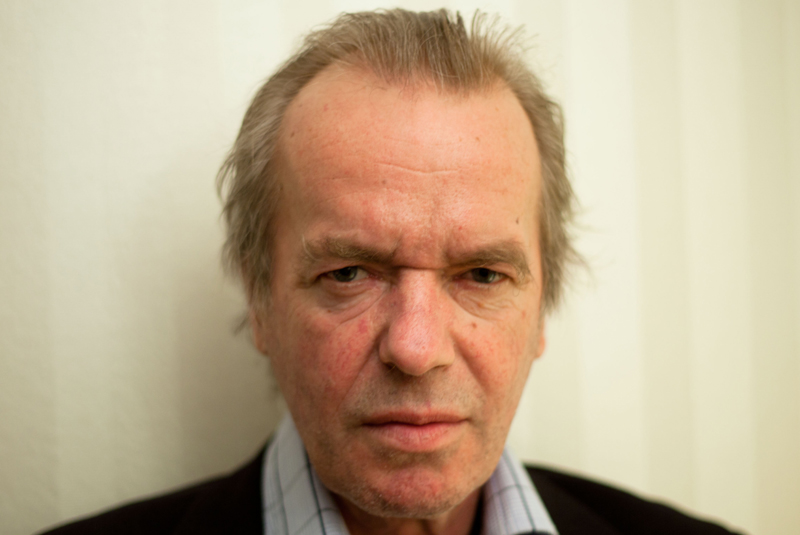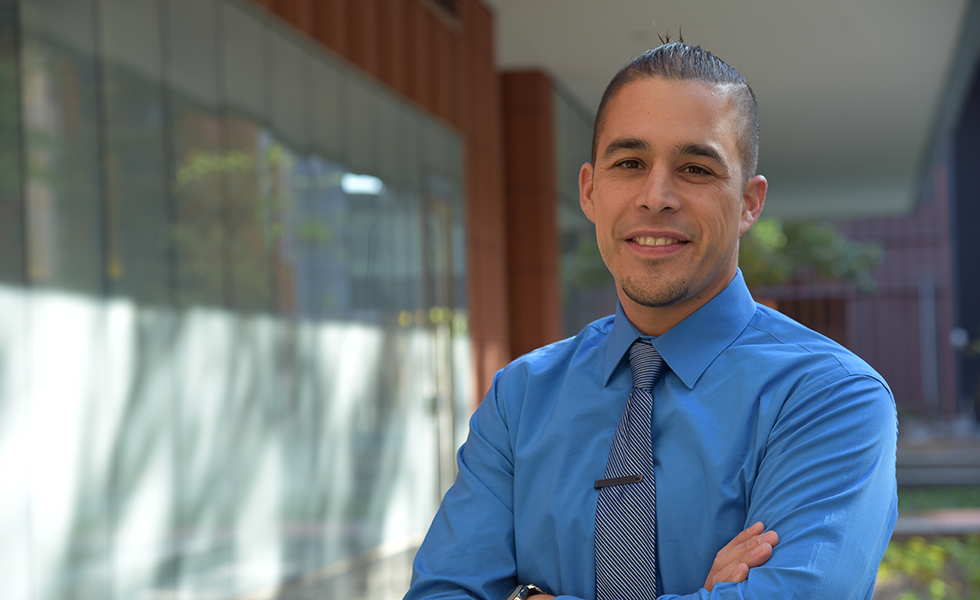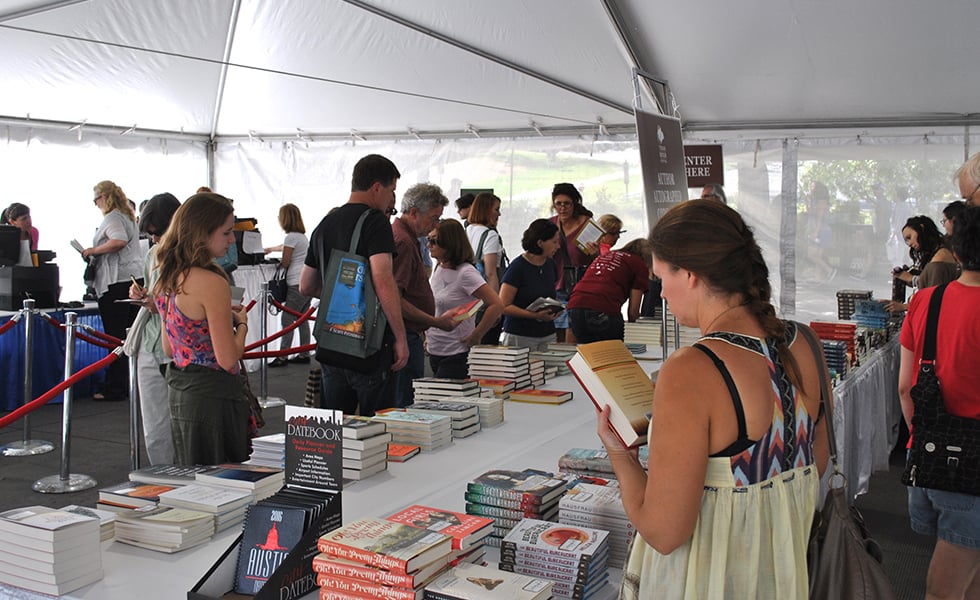
Texas Book Festival 2014: The Observer Picks

There must be a million ways to approach the 2014 Texas Book Festival, an embarrassment of written riches featuring more than 280 authors in every genre you can think of packed into two wham-bam days.
You could pick a theme and follow it around the Capitol grounds, for instance, or you could plant yourself in a seat in an extension room somewhere and watch whatever comes your way.
Or you could do what we’re doing, and compile a highly subjective, entirely idiosyncratic, don’t-even-bother-feeling-compelled-to-justify-it schedule of stuff that just plain strikes your fancy.
Here’s ours:
Martin Amis
The one-time bad boy of British letters is a grumpy old man living in Brooklyn now, his prose pyrotechnics largely replaced by ponderousness, and it’s hard to find anyone who’ll admit to reading, much less liking, anything he’s written since The Information. (Though his latest, and his reason for being here, The Zone of Interest, an examination of the banality of evil and the persistence of love set in a German concentration camp, is garnering some positive notice). Regardless, Amis is cleverer than his increasingly frequent detractors by half at least, and if he doesn’t manage to get the House chamber giggling uncomfortably about genocide, I’ll eat my well-thumbed copy of The War Against Cliche. (Brad Tyer)
 Cynthia Bond
Cynthia Bond
Among the 2014 titles we’ve reviewed at the Observer, Cynthia Bond’s Ruby is the one that has stuck with me the most. It’s a gripping, brutal tale that, in the words of our reviewer, “illustrates how the harshness of racism and the ever-present vestiges of slavery use, and use up, black bodies, especially black women’s bodies.” Bond’s own story is plenty interesting—after a rural East Texas upbringing, she taught writing to homeless youth in Los Angeles for 15 years and worked as an actor in New York City. At this year’s Book Festival she’ll join Bill Cotter (another author we’ve reviewed) for “Home Sweet Texas,” a discussion about characters who leave Texas to strike gold in Manhattan, only to return home again. (David Duhr)
Douglas Brinkley
The Joyce Carol Oates of historians, occasional Observer contributor Brinkley is back with The Nixon Tapes. He’ll be featured at the TBF with Nixon expert and co-author Luke Nichter and Nixon legal counsel John Dean on the panel “Nixon,” moderated by journalistic heavy-hitter Robert Draper. Go. You will learn interesting things. (Brad Tyer)
James Ellroy
On the eve of America’s entry into World War II, the brutal murder of a Japanese family draws together a diverse cast of corrupt cops, war profiteers, and a young woman looking for adventure. Revisiting characters from his L.A. Quartet, Ellroy drops another piece of noir pulp with Perfidia, which, like the rest of his work, doubles as a tapestry of the era itself. It’s all a bit self-serious, but Ellroy’s prose and characterizations are sharp and cut with the moral murkiness that makes any good mystery so much fun. (Asher Elbein)
Carrie Fountain
Fountain is an occasional Observer contributor and one of the most interesting poets working in Texas or anywhere else, for our money. I’ll be checking out her conversation with the always-provocative Houston poet laureate Gwendolyn Zepeda and Curtis Bauer, about whom I know nothing at all. Yet. (Brad Tyer)
S.C. Gwynne
I haven’t yet read Gwynne’s new Stonewall Jackson biography, Rebel Yell, but I did read his previous book, Empire of the Summer Moon, and on the basis of that, until and unless Gwynne leads me astray, I’ll be reading whatever he writes. (Brad Tyer)
Smith Henderson
Henderson’s Fourth of July Creek is only of the most highly praised of a recent crop of highly praised debut novels by Michener Center alumni, and it takes place in Montana. I used to live in Montana, still miss it sometimes, and I’ve crossed Fourth of July Creek; it’s about a quarter of the way up Rock Creek toward Skalkaho Road. Interest: piqued. Henderson will talk about rural corruption with fellow Michener grad, Austinite and novelist (The Bully of Order) Brian Hart. (Brad Tyer)
 Cristina Henríquez
Cristina Henríquez
Like Cynthia Bond, ex-Texan Henriquez also has an interesting backstory, having lived in Delaware (where her 2014 novel, The Book of Unknown Americans, reviewed by the Observer, is set), Florida, Chicago, Panama, Virginia and many more locales. Her TBF panel is called “The Fiction of Unfamiliar Faces,” where she and Bret Anthony Johnston, a Michener Center for Writers grad, will talk about characters “who are not part of the mainstream.” (David Duhr)
Rolando Hinojosa-Smith
Texas author Rolando Hinojosa-Smith was recently presented with one of the highest honors in the literary world: the Ivan Sandrof Lifetime Achievement award, presented annually by the National Book Critics Circle to writers who’ve made an exceptional and lasting contribution to American letters. Hinojosa-Smith deserves that honor and more. The 85-year-old author, essayist and translator has devoted a lifetime’s work in chronicling Texas’ bilingual border culture. He’s best known for his Klail City Death Trip series—a loosely fictionalized world that Hinojosa-Smith has populated with vibrant characters who reflect the humor, customs and hardship of life in the Rio Grande Valley, where Hinojosa-Smith spent his formative years. Don’t miss this breaker of fiction’s rules and pioneer of Texas literature. (Melissa del Bosque)<
Marlon James
Marlon James’ new novel, A Brief History of Seven Killings, sounds epic, spanning nearly three decades (and 704 pages) in Jamaica. James tackles gang warfare, the crack epidemic, and the attempted assassination of “The Singer,” who is clearly Bob Marley. At the Festival, James will join Ray Robertson on a panel called “Upbeats, Downbeats” to discuss “the restorative power of music” and the role it plays in both men’s fiction. (David Duhr)
 Stephen Graham Jones
Stephen Graham Jones
Books have been pouring out of Stephen Graham Jones lately, including three so far in 2014: Not For Nothing, Floating Boy and the Girl Who Couldn’t Fly and After the People Lights Have Gone Off, a collection of horror stories. His 2012 book Growing Up Dead in Texas is one of the finest novels to come out of 21st-century Texas. Jones will sit on two panels at this year’s Book Festival: “Choose Wisely,” where he’ll talk with Lauren Miller and Trent Reedy about “what brings out the good from even the most troubled lives”; and “The Daily Horrors,” a discussion about horror writing with Austinite Robert Jackson Bennett. (David Duhr)
Norman Lear
The producer of All in the Family, The Jeffersons, Sanford and Son and so many other classic sitcoms is now in his 90s, so don’t miss this opportunity to listen to him speak. His new memoir, Even This I Get to Experience, has a mid-October release, and at the TBF he’ll appear at a discussion called “The Producer,” which is sure to fill up the House chamber. (David Duhr)
Valeria Luiselli
I’m currently reading Luiselli’s short novel, Faces in the Crowd, which is set in Harlem, Mexico City and Philadelphia, is translated from Spanish by Christina MacSweeney, and was published by Coffee House Press in Minneapolis. Luiselli was born in Mexico, grew up in South Africa, and now lives in New York City. Her global perspective should be on display at the TBF panel “Colorful Chaos: The Future of Mexico City,” where she’ll be joined by Francisco Goldman. (David Duhr)
 Myra MacPherson
Myra MacPherson
We tend to sanitize our great social justice movements, sanding down the outlier edges. That’s a shame, because sometimes the fringe characters are the most interesting. In the sweeping, funny and unsparing biography, The Scarlet Sisters: Sex, Suffrage, and Scandal in the Gilded Age, MacPherson draws out the lives of two hustling suffragettes who traversed the Gilded Age seeding shock and scandal wherever they went. In a panel titled “If the Victorian Era had Reality TV,” MacPherson and Cristin O’Keefe Aptowicz promise a fun dip into the late 19th century with a doubtless pointed glance at how little has changed in the world of gender relations since. (Asher Elbein)
Mary Margaret McAllen
Remember that time France tried to sneak in and establish a puppet kingdom in Mexico during the American Civil War? Most people don’t, and the fact that it’s not a exactly a famous story is a clue that it didn’t go well. And yet it’s the kind of story that really ought to be better known, as it features frantic global politicking, fierce democratic resistance, and some deeply weird characters, not the least of whom was Emperor Maximilian. Anyone with an interest in the history of our southern neighbor ought to find McAllen’s Maximilian and Carlota: Europe’s Last Empire in Mexico—and McAllen’s talk with Mexico specialist C.M. Mayo, moderated by longtime Observer contributor Steven G. Kellman—an eye-opener. (Asher Elbein)
Elizabeth McCracken
Elizabeth McCracken did a bang-up job judging the Observer‘s short story contest this year, but it’s more than gratitude that’ll draw me to hear her speak on Saturday. Her new collection, Thunderstruck, is getting the kind of reviews that only a high priestess of the form could generate, and now I’m just plain curious. (Brad Tyer)
Joyce Carol Oates
Given Oates’ time commitments at the festival, it’s likely that she’ll be dialing back her usual weekend productivity from a medium-length novel to, say, just a short story or two. Like, perhaps, those collected in the latest of her astonishingly long line of books, Lovely, Dark, Deep. But don’t make the mistake of assuming that quantity comes at the expense of quality. Oates is an American master and a force of nature, and if you don’t have a question for her more interesting than how she manages to, you know, make the time, then you haven’t been paying attention. You can begin to rectify that situation on Saturday. (Brad Tyer)
 Carolyn Osborn
Carolyn Osborn
I’ve only just started reading the undersung Texas writer’s new collection of interlinked stories, Where We Are Now, and as brief as the book is, I can tell I’ll be settling in for a long savor. These are stories of domestic life that have the texture and surprise of actual family lore, and Osborn’s deceptively plainspoken voice is a compelling narrator. At the TBF, she’ll be talking about family, pro and con, with fellow authors Natalie Baszile and Lin Enger. (Brad Tyer)
Anne Helen Petersen
Who doesn’t love a good scandal? As entertaining as the dirty laundry of today’s celebrities can be, they’re often missing the most important ingredient of a good imbroglio: a frantic and failed attempt to cover it up. In the days of the old studio system, however, actors’ public images were tightly controlled and heavily whitewashed, which made the inevitable leaks that much juicier for being forbidden. With Scandals of Classic Hollywood: Sex, Deviance, and Drama from the Golden Age of American Cinema, Peterson dives into the dirt and explains why it stuck. At the TBF panel “Drinks and a Movie,” she joins fellow gossipmonger Mark Bailey to dish out the dish. (Asher Elbein)
Colson Whitehead
Television coverage of poker tournaments can be baffling for the uninitiated. Why, out of all the things that could be shown on the picturebox, is the camera staring at a table filled with people hardly moving their faces? Colson Whitehead has an answer: The people who compete in professional poker are deeply strange and often absurdly entertaining. In The Noble Hustle: Poker, Beef Jerky, and Death, an expanded and reworked version of dispatches Whitehead originally filed for Grantland, he lays out what he saw and who he met while reporting on the tournaments. If his speaking voice is anywhere near as funny as his written one, his TBF appearance—in conjunction with Benny Binion biographer Doug J. Swanson and poker memoirist Molly Bloom—promises to be a hoot. (Asher Elbein)


